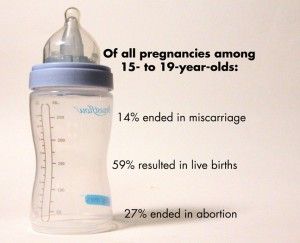The University of Notre Dame fell into trouble last Thursday when the Law School sent out an official email quoting Mahatma Gandhi comparing birth control use to prostitution. The email promoted an event to discuss the Catholic Church’s teaching on contraception.
In the wake of a media whirlwind surrounding the birth control topic, the Pepperdine Student Health Center is maintaining a policy of not offering birth control to students on campus.
Earlier this week Pfizer drug makers recalled 1 million packets of birth control, the Susan G. Komen for the Cure foundation reversed decisions to cut funding to Planned Parenthood, and the Affordable Care Act exempted religious institutions from insurance’s free birth control policy. All the while, one Pepperdine student couldn’t obtain her birth control product while stuck on campus.
“I have a prescription that gets sent in from home that I pick up at CVS,” said a female student, who wished to remain anonymous. She uses the contraceptive NuvaRing, which for four months now has curbed her uncontrollable cramps and nausea. She’s under Pepperdine’s Student Insurance Plan but still has to pay the $75 a month. Without a car, the female student relies on friends for a ride to the pharmacy and does not consider the Student Health Center (SHC) to be of any service to her.
The SHC does not provide condoms, however, providing birth control and the morning-after pill are considered once “the providers evaluate the patient’s needs and [then] provide care according to best practice recommendations,” according to SHC Director Nancy Safinick in an email to the Graphic.
“The University’s protocol regarding birth control is to educate students regarding the risks of sexual relationships and to promote abstinence.” Safinick wrote. “Certainly, some women request birth control, but keep in mind, [the SHC] serves all campus, including graduate students, many of whom are married.”
The SHC, located in Rho parking lot, views itself as a regular family doctor’s office. The staff aims to foster values and healthy living through both educational outreach events and regular sexually transmitted infection (STI) testing. The Student Health Advisory Board works in close liaison with the medical clinic to prepare convocations and annual student surveys regarding sexual health.
“The SHC educates students to ensure they understand the risks of sexual relationships and to promote abstinence among unmarried students; this is not only based on Pepperdine’s faith tradition but also consistent with Centers for Disease Control’s health recommendations that practitioners encourage the delaying the onset of sexual activity and minimizing the number of sexual partners,” Safinick wrote.
Emergency or preventive options for students without wheels appear slim. Malibu Urgent Care on Pacific Coast Highway is the nearest recourse. It offers physical exams and testings on a walk-in basis. Without insurance, every exam is proceeded by a $230 consultation fee. From there the clinic can provide women’s wellness services such as birth control prescriptions, pregnancy testing and assistance, and STD testing, treatment and vaccines. Urgent Care does not provide abortion services. The closest Planned Parenthood, which offers birth control, emergency contraception, abortion services and pregnancy and STD testings and services, is in Santa Monica at the Third Street Promenade.
If a female student becomes pregnant, she can seek assistance at the Health and Counseling Centers, as well as other offices. The Student Handbook denotes pregnancy with Pepperdine providing “resources, support, and assistance for the student to continue her studies. Although Pepperdine does not support an unmarried student’s choice to engage in sexual relationships, we do support any pregnant student throughout the process. We will not pursue disciplinary action regarding the matter.”
Director Connie Horton stressed the Counseling Center’s role as emotional support given an unplanned pregnancy, which they have encountered in the past. The Counseling Center offers confidential support that cannot be reported to administration or parents. Any person concerned with pregnancy is encouraged to contact either Horton or Safinick.
For those concerned with family planning, both the Counseling Center and the SHC recommended off-campus resource is Westside Pregnancy Clinic (WPC) in Santa Monica. CEO of WPC and Pepperdine alumna Talitha Phillips (‘00) became CEO of WPC in 2001.
Where do students weigh in on the matter of birth control availability?
“I think you have to look at the goals of the university,” junior Veronica Russel said. “Is the university trying to promote safe sex, or do they want students to wait for marriage? If you just look at the goals of the university, that’s when it becomes clear.”
Russel said she leans toward the promotion of abstinence because of her upbringing but also expresses a doubt that the SHC’s strategy is always successful. She also supports the idea of the office providing emergency contraception if there is an accident.
Freshman Michael McCormack says the contraception inconvenience is a big problem.
“I think what the university and the administration needs to look at [is] the majority,” McCormack said. “I don’t think the small percentage of those against premarital sex should make it inaccessible on the campus as a whole. It helps prevent pregnancies at the end of the day, so you might as well give it to students so they don’t have a kid.”
On the topic of condoms, freshman Elliott Bassile opposes the idea that the SHC or his Resident Advisers cannot provide protection: “My high school, a boarding school, had a rule where if the opposite sex was in your dorm, you had to have both feet planted on the ground — even that the school handed out condoms.”

